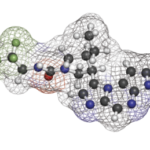
Maxx-Studio / shutterstock.com
ATLANTA—New drug approvals, new and expanded drug indications, and important safety and other updates relevant for rheumatologists were presented by three physicians from the U.S. Food & Drug Administration (FDA) on Nov. 11 at the 2019 ACR/ARP Annual Meeting.
New JAK Inhibitor Approved for RA
On Aug. 16, 2019, the FDA approved upadacitinib (Rinvoq), an oral Janus kinase (JAK) 1 selective inhibitor, for the treatment of moderate to severe active rheumatoid arthritis (RA) in patients who have an inadequate response to methotrexate. The approved dose for upadacitinib is 15 mg taken once daily.
“The assessment of the efficacy and safety of upadacitinib is primarily derived from five phase 3 studies that were designed to assess once-daily upadacitinib dosing as monotherapy and as combination therapy with methotrexate or other conventional disease-modifying anti-rheumatic drugs [DMARDs],” said Rachel L. Glaser, MD, a rheumatologist and clinical team leader in the FDA’s Division of Pulmonary, Allergy and Rheumatology Products (DPARP). “The studies enrolled a broad population of patients with moderate to severe active RA who were either naive to methotrexate, had an inadequate response or intolerance to methotrexate or conventional DMARDs, or had an inadequate response or intolerance to biologic DMARDs.”
According to a summary on the FDA’s website, the trials were conducted at many global sites and included 3,141 patients with active RA, including 2,495 women and 646 men.1 Patients who were treated with upadacitinib, either alone or in combination with DMARDs, achieved higher ACR20 response rates in all five trials than patients on methotrexate monotherapy or placebo at the primary efficacy time point. Similar trends were observed for ACR50 and ACR70 responses, as well as for DAS-28/CRP of less than 2.6, said Dr. Glaser. Efficacy was also established for improvement in physical function as measured by HAQ-DI. Radiographic progression was evaluated in two studies. In both, upadacitinib at 15 mg once daily inhibited the progression of structural joint damage compared with the control groups.
“The safety profile of upadacitinib is generally compatible with that of other JAK inhibitors and other immunosuppressants approved for RA, including risk of serious infections, malignancies and thrombosis described in a boxed warning in the upadacitinib prescribing information,” she said.
Other safety warnings include gastrointestinal perforations and laboratory abnormalities, such as neutropenia and anemia, which are noted for other JAK inhibitors, as well as one for embryo-fetal toxicity. “Based on animal studies, upadacitinib may cause fetal harm,” said Dr. Glaser. “Due to these findings, [women] of reproductive potential should be advised of the risk and the need for use of effective contraception.”
New Indications for Other Drugs
Drugs with new indications approved in 2019 include:
- Nintedanib (Ofev), an oral, small-molecule, tyrosine kinase inhibitor, was approved in September for slowing the rate of decline in pulmonary function in patients with systemic sclerosis-associated interstitial lung disease (SSc-ILD);
- Ixekizumab (Taltz), an interleukin (IL) 17-A inhibitor, was approved in August for the treatment of active ankylosing spondylitis;
- Apremilast (Otezla), a phosphodiesterase-4 inhibitor, was approved in July for adults with oral ulcers associated with Behçet’s disease; and
- Certolizumab pegol (Cimzia), a tumor necrosis factor (TNF) inhibitor, was approved in March for the treatment of active, non-radiographic axial spondyloarthritis with objective signs of inflammation.
In 2019, the FDA also approved expanded pediatric indications for two medications:
- Intravenous belimumab (Benlysta), a BLyS-specific inhibitor, was approved for pediatric patients with systemic lupus erythematosus (SLE) from ages 5–17 years; and
- Rituximab (Rituxan, MabThera), a CD20-directed cytolytic antibody, was approved for pediatric patients with granulomatosis with polyangiitis (GPA)/microscopic polyangiitis (MPA) ages 2 and older, and as follow-
up treatment for both adults and pediatric patients with GPA/MPA.
Since the 2018 ACR/ARHP Annual Meeting, the FDA has approved four treatments that are biosimilar to drugs often prescribed by rheumatologists: adalimumab-adaz (Hyrimoz), adalimumab-bwwd (Hadlima), etanercept-ykro (Eticovo) and rituximab-pvvr (Ruxience). The FDA also approved several first-time generic drugs that may be prescribed for patients with rheumatic diseases, including nabumetone, febuxostat, pregabalin, tramadol hydrochloride 100 mg tablets, sildenafil oral suspension, penicillamine and bosentan, noted Dr. Glaser.
Additionally, colchicine oral solution (Gloperba), a new formulation of this drug, was approved in January 2020 for prophylaxis of gout flares in adults, providing patients with a new option for gout flare management.
“The last year has been an exciting year for the division, community, and patients. We have approved multiple products for rheumatic diseases, and approved drugs for new indications and populations, including first approvals to slow pulmonary function decline in SSc-ILD, for oral ulcers in Behçet’s disease, non-radiographic axial spondyloarthritis, pediatric patients with SLE and pediatric patients with GPA/MPA,” said Dr. Glaser.
Safety Issues
In 2019, the FDA added warnings for several important safety issues, and announced drug recalls and drug shortages, said Nadia Habal, MD, medical officer, DPARP.
Febuxostat (Uloric), a selective xanthine oxidase inhibitor, received a revised indication for chronic management of hyperuricemia in gout patients who have an inadequate response to a maximally titrated dose of allopurinol, who are intolerant to allopurinol or for whom treatment with allopurinol is not advisable.
‘The last year has been an exciting year for the division, community & patients. We have approved multiple products for rheumatic diseases.’ —Rachel Glaser, MD
“The drug has a new boxed warning for cardiovascular death after the FDA required a post-marketing safety trial because of concerns related to cardiovascular events and death in the original febuxostat development program,” said Dr. Habal.
“The CARES study of 6,190 gout patients showed that all-cause mortality and cardiovascular mortality were higher with febuxostat than with allopurinol, which raised concerns about the drug staying on the market,” she said. “However, there are limited therapies available for gout. Febuxostat is one of only two marketed xanthine oxidase inhibitors, which are considered first-line therapies for the treatment of gout. Given the limited number of therapies, gout is a disease with highly unmet need for treatment options.”2
In January 2019, an FDA Advisory Committee met to review the trial data. Members voted (19 yes, 2 no, 1 abstention) that there is a patient population in which the benefit-risk profile for febuxostat is favorable for the treatment of hyperuricemia in gout patients. They recommended febuxostat be reserved for patients who cannot tolerate, or have failed, an adequate trial of allopurinol (i.e., use as a second-line therapy).
“The agency determined that there is a patient population for whom the benefit of febuxostat outweighs the risks and concluded that febuxostat should not be removed from the market,” she said.
“In 2019, the FDA also added boxed warnings for three JAK inhibitors, upadacitinib, tofacitinib (Xeljanz, Xeljanz XR) and baricitinib (Olumiant), due to their risk of thromboembolic events,” said Dr. Habal. These warnings were based on interim data from an ongoing safety trial of tofacitinib.3
“When FDA first approved tofacitinib, a clinical trial was required among patients with RA to evaluate the risk of heart-
related events, cancer and opportunistic infections with the medicine at two doses: 10 mg twice daily and 5 mg twice daily in combination with methotrexate in comparison with a tumor necrosis factor inhibitor,” said Dr. Habal. A data safety monitoring committee found patients receiving the 10 mg twice daily dose had increased occurrences of blood clots and death compared with those receiving the 5 mg twice daily dose or TNF inhibitors.
“This resulted in the discontinuation of the 10 mg twice daily dose arm in that trial and transitioning the patients who were on the high twice daily dose to the lower, currently approved dose of 5 mg twice daily,” she said.
The FDA added boxed warnings about thrombosis risk to the prescribing information for baricitinib, stating patients with thrombosis symptoms should be evaluated promptly, and to upadacitinib, warning that thrombosis has occurred in patients taking JAK inhibitors used to treat inflammatory conditions.
Other recent safety and drug shortage updates included:
- Tocilizumab (Actemra): Based on clinical trial and post-marketing safety data, the FDA added a warning for hepatotoxicity to the tocilizumab prescribing information. Updated labeling recommends patients with RA and giant cell arteritis obtain a liver test panel before initiating the drug, every four to eight weeks for the first six months of treatment, and then every three months;
- Belimumab (Benlysta): The FDA expanded the existing warning and precaution for depression to include the risk of suicidality. The warning recommends physicians assess depression and suicide risks in patients before initiating therapy and monitor patients during treatment. Patients should contact their healthcare provider if they experience new or worsening depression, suicidal thoughts or other mood changes; and
- Intravenous immunoglobulin (IVIG) shortage: Currently, there is a shortage of IVIG and immunoglobulin subcutaneous products in the U.S. due to increased demand. “The agency is working closely with the applicants and manufacturers of IVIG to mitigate the supply shortage,” she said.
New FDA Initiatives: Pediatric Drug Development

From left: Nadia Habal, Rachel Glaser & Nikolay Nikolov
Many challenges related to developing drugs for pediatric patients exist, said Nikolay Nikolov, MD, associate director for rheumatology, DPARP. The FDA’s work to ensure safe, effective drug development for pediatric patients is framed by two laws: the Best Pharmaceuticals for Children Act (BPCA) and the Pediatric Research Equity Act (PREA).
“The BPCA provides a financial incentive in the form of marketing exclusivity to pharmaceutical companies to voluntarily conduct pediatric studies by way of written requests. Sponsors who fairly meet the terms of the written request may be able to receive a six-month period of exclusivity for marketing,” said Dr. Nikolov.
“The PREA, on the other hand, gives the FDA the authority to require pharmaceutical companies to assess safety and effectiveness of certain products in pediatric patients, and this is when a drug is approved for an adult indication for which there is a pediatric equivalent or population,” he said. “The goal of both programs, one being the carrot and one being the stick, is to increase the number of approved therapies for pediatric patients.”
As a result, a number of highly effective therapies, including drugs to treat juvenile idiopathic arthritis (JIA), have been developed in recent years. Before 2008, studies used to provide evidence to approve JIA medications were randomized, double-blind, controlled trials. Recently, investigators have conducted randomized withdrawal trials that minimized pediatric patients’ exposures to placebo, but still provided ths evidence needed to establish the efficacy and safety of new products.
“Despite many advances in JIA treatment development, challenges remain,” said Dr. Nikolov. JIA is a heterogeneous group of rare diseases that have pediatric-specific manifestations. Concerns about the use of placebo in trials involving children and lingering uncertainty about trial endpoints all make designing and conducting pediatric studies challenging.4
To address these challenges, in October the FDA convened a one-day workshop called Accelerating Drug Development for Polyarticular JIA, which included ACR and patient representatives. Topics included efficacy data extrapolation from adult arthritis studies, modeling and simulation, trial design, dose selection, and the levels of evidence needed to establish safety and efficacy in pediatric patients with polyarticular JIA.
At the workshop, attendees discussed how evidence to support a drug’s use in children may be extrapolated from controlled studies in adults. This approach is based on an understanding of the degree of disease and drug response similarity between adults and pediatric patients that can be measured on a continuum, with “no overlap between the adult and pediatric conditions at one end, and significant overlap and no significant differences at the other end,” he said.
“During the discussion, one thing became clear. Differences in nomenclature between adults and children have created considerable uncertainty on how to apply the principles of extrapolation. In that respect, these challenges can have a direct impact on drug development in JIA,” said Dr. Nikolov. “But they can also have a direct impact on patient care by making it difficult for some pediatric patients to transition to adult care.”
At the workshop, attendees agreed that polyarticular JIA and adult RA were sufficiently similar, and that rationales for dosing in JIA programs have relied on matching effective pharmacokinetic exposures in adult RA patients. Extrapolation of efficacy from adults with RA to children with polyarticular JIA based on exposure matching may be scientifically justified, particularly for products with established mechanisms of action. There are uncertainties with this approach, mainly that dosing and safety cannot be extrapolated and would have to be studied, and that products with new mechanisms of action may have a limited amount of information for extrapolation.
Attendees also discussed ways to address these uncertainties, said Dr. Nikolov. Example: Adult and pediatric rheumatic disease nomenclature could be reconciled when it’s justified, and investigators could use a quantitative, Bayesian statistical approach when borrowing information from adult studies for use in pediatric trials, as was done in an intravenous belimumab trial presented at the ACR/ARP Annual Meeting.5
Susan Bernstein is a freelance journalist based in Atlanta.
References
- U.S. Food & Drug Administration. Drug approvals and databases: Drug trials dnapshots: RINVOQ. 2020 Jan 21.
- White WB, Saag KG, Becker MA, et al. Cardiovascular safety of febuxostat or allopurinol in patients with gout. New Engl J Med. 2018 Mar 29;378(13):1200–1210.
- U.S. Food & Drug Administration. Drug safety and availability: FDA approves boxed warning about increased risk of blood clots and death with higher dose of arthritis and ulcerative colitis medicine tofacitinib (Xeljanz, Xeljanz XR): FDA drug safety communication. 2019 Aug 28.
- Hinze C, Gohar F, Foell D. Management of juvenile idiopathic arthritis: Hitting the target. Nat Rev Rheumatol. 2015 May;11(5):290–300.
- Pottackal G, Travis J, Neuner R, et al. Application of bayesian statistics to support approval of intravenous belimumab in children with systemic lupus erythematosus in the United States (abstract #2865). Arthritis Rheumatol. 2019 Oct;71(suppl 10).



